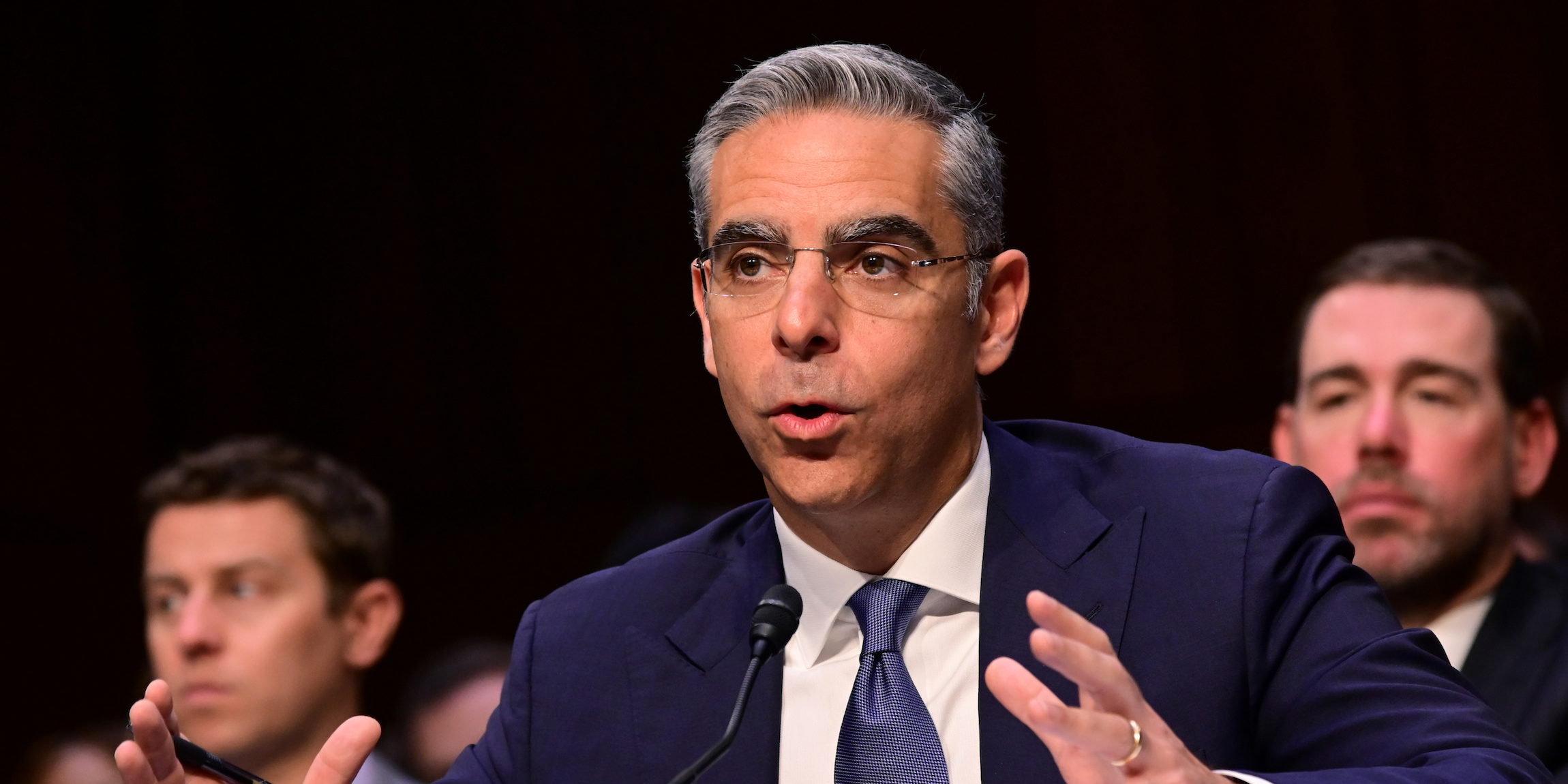- David Marcus, Facebook’s cryptocurrency chief, testified before a Senate committee on Tuesday.
- Skeptical senators wanted to know why they should trust Facebook to build a digital currency, given its track record of scandals.
- Marcus argued in part that if an American company doesn’t do this, a foreign one will instead.
- The question of antitrust also came up.
- Visit Business Insider’s homepage for more stories.
Facebook’s David Marcus faced a bipartisan grilling for more than two hours in the US Senate on Tuesday as lawmakers tore into the company’s plans to launch a digital currency. There was a key theme throughout the hearing: Why should anyone trust Facebook to build this?
Marcus, who heads up Facebook’s cryptocurrency efforts, testified before the Senate Committee on Banking, Housing, and Urban Affairs about the California technology giant’s blockchain efforts, called Libra. The Libra currency was first announced in June and is scheduled to launch at some point in 2020.
Facebook has weathered sustained criticism from politicians on both sides of the aisle over its two years of scandals, and the Senate committee hearing was no different, providing an opportunity for both Republicans and Democrats to bash the technology executive about both Libra and Facebook’s litany of other missteps.
Democratic Sen. Sherrod Brown of Ohio was incredibly critical of Facebook’s track record and its ability to competently play a role in the global financial system, quipping: “Like a toddler whose gotten its hands on a book of matches, Facebook has burned the house down over and over and called every arson a learning experience.”
Democratic Sen. Chris Van Hollen of Maryland likened the Libra Association, the nominally independent organization that will oversee Libra, to "Spectre" - the villainous organization from the "James Bond" series.
Throughout, Facebook's Marcus remained essentially unflustered and stuck closely to public-relations talking points. Only one moment really ruffled him - when Republican Sen. John Kennedy went off on a tangent and asked whether "truthful reporting [on Facebook] has been displaced by flagrant displays of bulls---?"
After a pause, Marcus answered, "I don't know how to answer that question," to audible laughter from others in the room.
The big question: trust
Marcus was asked repeatedly, by multiple senators, why Facebook could be trusted to create Libra - given its track record of missteps, from Cambridge Analytica to facilitating the spread of hate speech that fueled genocide in Myanmar.
The former PayPal president's basic response had two parts: First, Facebook won't be responsible overall for Libra - that control will be ceded to the Libra Association, of which Facebook will be only one member among a planned 100.
And second, Facebook is promising that Libra won't be launched at all until it has satisfied all the relevant regulators' concerns.
"Trust is primordial, and we've made mistakes in the past," Marcus said. "We're continuing to work really hard to get better ... we've invested in a number of programs to get better."
A nationalistic line of argument
While arguing that Libra is necessary, Marcus also repeatedly leaned on an assertion that plays into concerns about American geopolitical power: If an America company doesn't build this, someone else might, to the detriment of the US.
"If we don't lead in the space, others will," Marcus said in response to questions from Republican Sen. Tom Cotton. "The same way we will end up having two internets and two infrastructures, we will have two different financial systems ... I believe if we stay put we're going to be in a situation in 10, 15 years where half the world is on a blockchain technology that is out of reach of our national-security apparatus."
However, the Libra Association is to be headquartered in Switzerland - though Marcus said that decision was not intended to "evade any responsibility" on regulations. "It is really because we believe a global, digitally native currency that will be used by people all round the world would benefit from being headquartered in an international place ... [that is the] home of many international organizations."
Antitrust
Facebook, like other big tech companies, is facing increasing calls for antitrust action to be taken against it, and it was a theme that came up during Tuesday's hearing.
Democratic Sen. Brian Schatz said he had heard privately that some of the members of the Libra Association still had questions about how it would operate, and they signed on because they were "terrified to be left out because of Facebook's market power."
In response to questioning, Marcus said Libra would be interoperable, meaning that users of one type of wallet software will be able to send money to ones using another. But, he conceded, Facebook will not integrate third-party wallet software into its own apps, just Calibra - giving it an immediate massive boost in audience to the company's 2.7 billion users across the globe.

